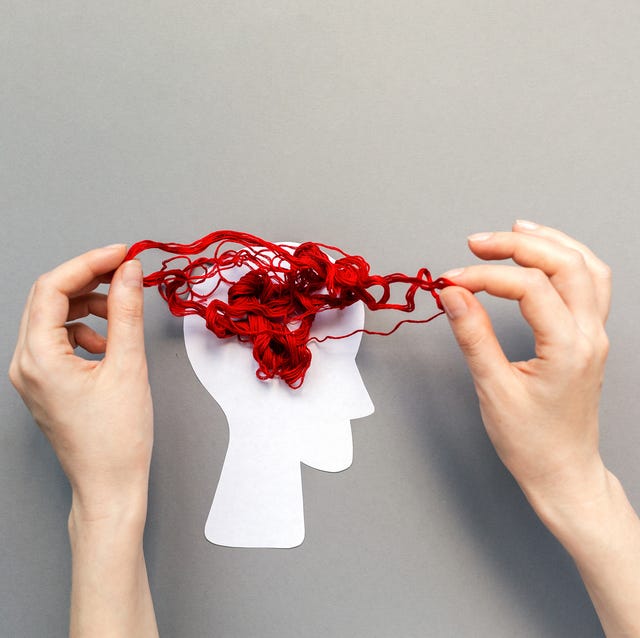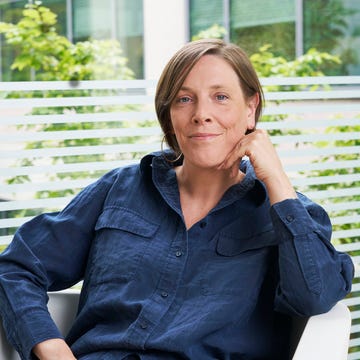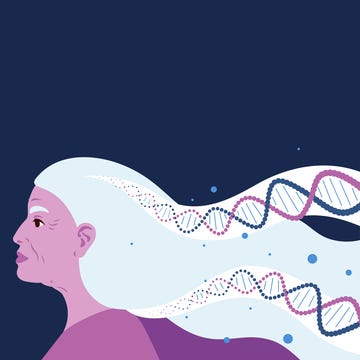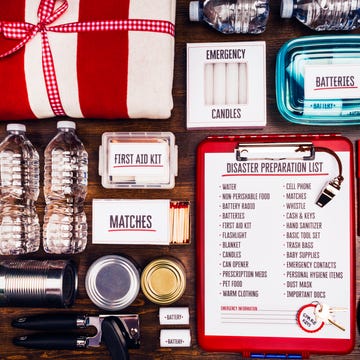It was only after my mum was diagnosed with dementia when I was in my late 50s that I started to notice lapses in my own memory. Mum had vascular dementia, as well as fronto-temporal dementia. The latter resulted in some challenging behaviours – she would go and just stand in front of people while we were out and I felt like I needed a T-shirt printed saying: ‘My mum has dementia. Please don’t judge.’
At the time, I was working as a nurse. I adored my job – but sadly had to stop working when I was 58 as I had severe back problems. I said to myself: at least it’s not dementia, as I’d seen that happen to the people I cared for.
Mum deteriorated fast. I looked after her and the last thing I wanted to do was put her into care, but in the end, the decision was taken out of our hands; the GP recommended she was sent to a dementia assessment unit and we were told we couldn’t help her at home – she needed to go into residential care.
Mum passed away when she was 80, and the problems with my own memory were worrying me. It started with going upstairs, then completely forgetting what I’d gone there for. I know that’s really common, but it happened numerous times. I’d put the cooker on or switch the iron on and forget to turn them off – sometimes, I’d completely forget to cook. One day, in 2021, I walked out of Tesco with all my shopping and didn’t realise until I was on my way home that I’d forgotten to pay.
Given what had happened with mum, I was really scared of a dementia diagnosis. But it got to the point where I couldn’t ignore it anymore, so I got a GP appointment. The GP ran some blood tests, then came back to me and said: ‘You definitely haven’t got dementia. You have folic acid deficiency.’ She said that at 63, I was too young for dementia.
She put me on six months of folic acid, which did absolutely nothing. So I went back and said: ‘I’m still doing things that I feel I shouldn’t be doing and I’ve seen this with my mum.’ I was sent for further tests, MRI scans and hours of gruelling cognitive function tests. There was still no definitive answer, and around 12 months later, I went back to my GP and said: ‘I just really need to know what’s going on, because I need to plan my life ahead.’ That was when she told me that, yes, I had vascular dementia – and that there was no treatment available. There was nothing that could be done.
In the back of my mind, I’d been expecting it, but it was still a real shock. When my husband came home, I asked him to sit down and told him the news… He just said: ‘She can’t have got that right?’ I assured him she had. From that moment on, he was officially my carer. It was clearly unsafe for me to do any cooking as I had recently set a pan on fire. I also had to stop driving, which was very difficult as that was my independence.
One of my main challenges is speech. I can be in the middle of talking and the words will be in my head but I’m not able to get them out. I have to just stop talking. The speech just won’t come and it’s incredibly frustrating.
I took after my mum in every way – but the thing I really, really didn’t want was dementia. It was such a gruelling time watching her go through that – emotionally draining and very upsetting. It was mum walking around but it wasn’t her. But after being diagnosed, I’ve come to terms with it. I just try and make the most of every single day. I have to be mentally busy; I go to the Memory Cafe in Taunton on a Tuesday morning, and I have an incredible support worker.
If I’d been diagnosed with cancer, people would have reacted totally differently to a diagnosis of dementia. There’s still such a stigma associated with it, and I want to break that stigma if it’s the last thing I do.
Treat people with a dementia diagnosis as normal people; talk to them normally – just perhaps give them a bit more time. Somebody described dementia to me as a Christmas tree that’s all lit up and suddenly, the lights start to turn off, 10 at a time, and they don’t come back on. So it can take someone with dementia a bit longer to grasp things.
For anyone facing a diagnosis, I’d say just take it one day at a time. Live your life. I'm 67 now, and I never know how quickly this dementia is going to creep up on me, or how tomorrow is going to be. But I think you just have to really throw yourself into doing something that you find you can lose yourself in – I can get a paintbrush out and work on art for hours. It brings real peace.
If you’re worried about yourself, or someone close to you, then check your symptoms today using Alzheimer’s Society’s symptom checklist. Visit alzheimers.org.uk/checklist or call their Dementia Support Line on 0333 150 3456.














